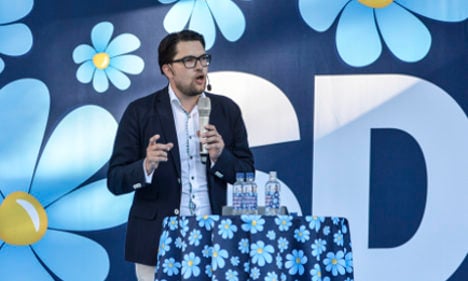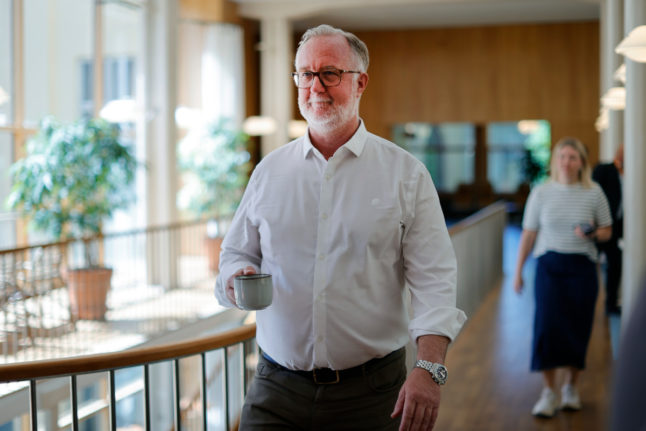The poll, for which more than 1250 people were asked who they would choose if there was a parliamentary election last week, suggests that the nationalist Sweden Democrats are now supported by 18.7 percent of voters.
This represents a jump of 3.0 percent on the last survey carried out by the same pollsters, Demoskop, for Sweden’s newspaper Expressen a month ago.
Sweden’s largest opposition party the Moderates – who led the previous government – saw its support drop by 3.0 points over the same period.
The poll also suggests a slight dip in support for Prime Minister Stefan Löfven’s Social Democrat party, but very small gains for their coalition partner, the Greens.
The smallest party in the Swedish parliament, the centre right Christian Democrats saw its support rise by 0.5 percent.
Demoskop interviewed a random section of people across the country between July 1st to July 7th as Sweden’s political conference week, Almedalen, took place on the island of Gotland. All of Sweden’s parties were given one day to dominate the agenda, culminating in a keynote speech on the stage in Almedalen park, in the medieval city of Visby.
More than 20,000 political campaigners, journalists, councillors, lobbyists and business people attended the event, which was covered in detail by The Local.
The political festival saw the nationalist Sweden Democrats attempt to broaden their agenda by focusing on children’s policies as well as cutting immigration.
Meanwhile new Moderate Party leader Anna Kinberg Batra and Sweden’s youngest political leader Ebba Busch Thor, who heads the Christian Democrats both made their debut Almedalen speeches.
Previous polls have already suggested that the Sweden Democrats have been continuing to grow their fan base since scoring 12.9 percent in the country’s last general election in 2014, but few surveys have suggested a proportion of supporters as high as Demoskop’s estimate of 18.7 percent.



 Please whitelist us to continue reading.
Please whitelist us to continue reading.